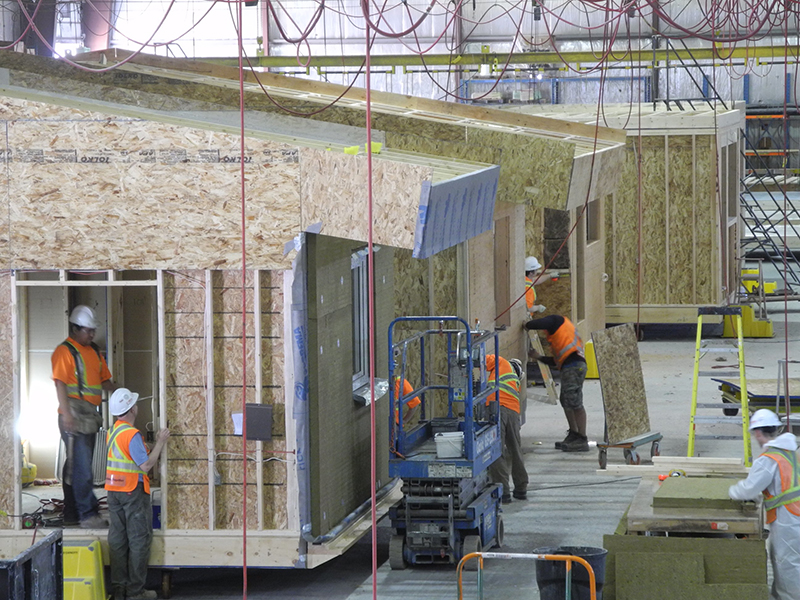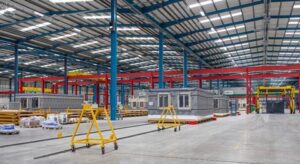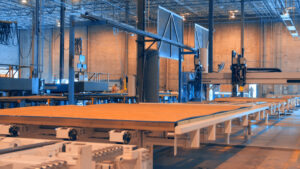Crafting Excellence: The Cornerstone of Offsite Construction
By Gary Fleisher, the Modcoach
Over 20 years ago, I worked for Champion Homes as the Genesis Home rep in one of their plants on the East Coast. Retention was a given in the plant. It was common for a father to work decades for the company and then to find his children following in his footsteps. It was amazing to watch the father, who had advanced to better workstations throughout his career, teaching his son or daughter what he had learned over the years.
I haven’t visited the production line of that factory for 20 years but I would bet that some of that is still happening in the production line because management treated them the way we all would like to be treated.
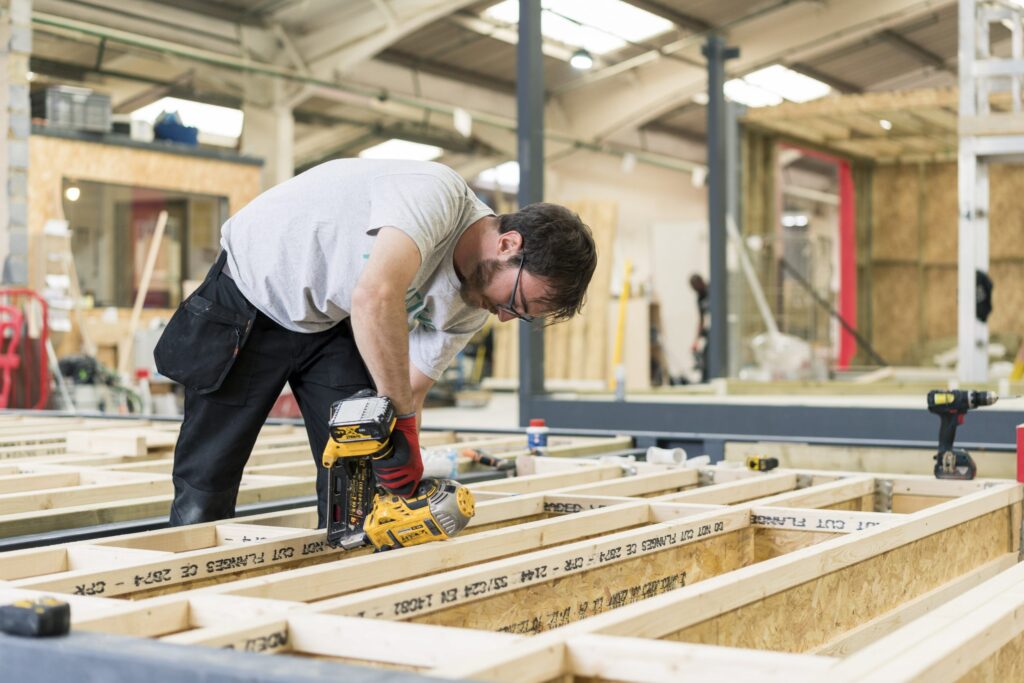
.
In offsite construction, the creation of buildings begins far from the actual construction sites. This sector, marked by its innovative pre-fabrication techniques, stands on the shoulders of a workforce whose specialized skills transform blueprints into reality.
These craftsmen and women are more than mere employees; they are the backbone of the construction process, ensuring that each project reflects the high quality and efficiency that offsite construction promises.
The Keystone of Stability: Understanding Employee Retention
Its ability to retain this skilled workforce is at the heart of a thriving offsite construction firm. Employee retention, often quantified by the percentage of employees who stay within a company over time, is a barometer for organizational health. With an industry benchmark of a 90% retention rate, it’s clear that maintaining a stable workforce is synonymous with success. However, the departure of even a single skilled worker can lead to significant disruptions, not to mention the financial implications—replacing an entry-level position can cost up to half of their yearly salary.
Navigating the Roadblocks to Employee Retention in Offsite Construction
Offsite construction, with its unique demands and innovative workflows, faces several critical hurdles that can significantly impact employee retention. Addressing these challenges is not just about enhancing workplace satisfaction but also about safeguarding the industry’s future by ensuring a steady stream of skilled professionals ready to lead its growth.
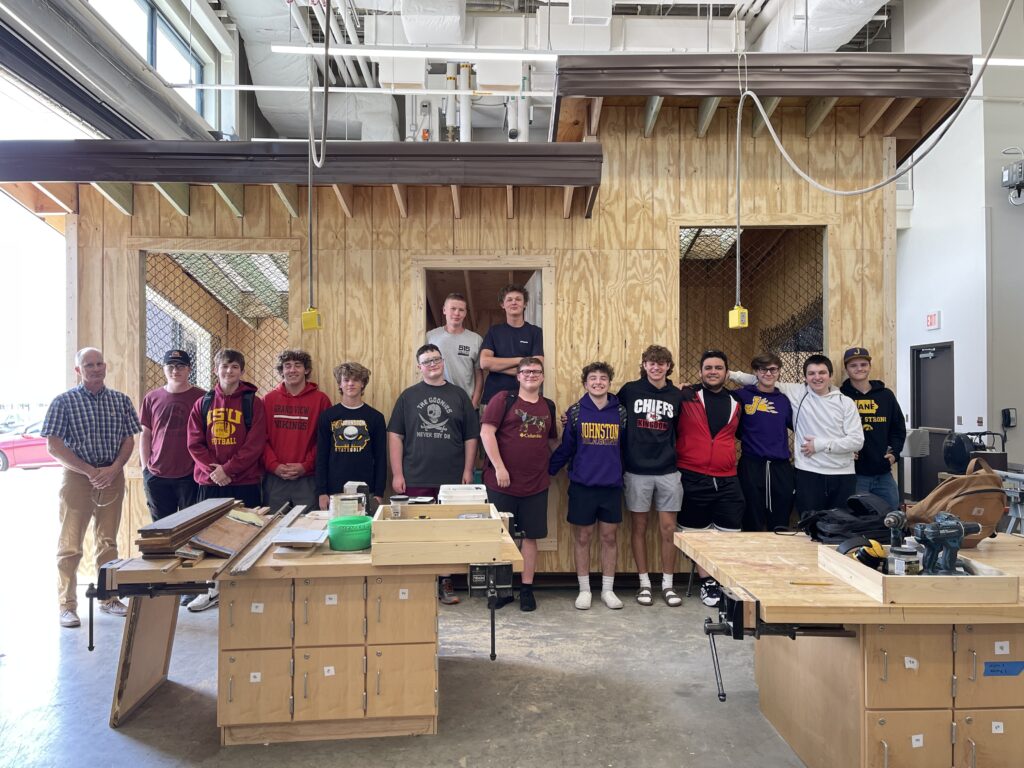
.
Limited Access to Training and Development
A cornerstone of employee retention is the opportunity for continuous learning and growth, especially for Gen Z workers. In offsite construction, where the introduction of technological improvements is becoming commonplace, limited access to training and development can leave employees feeling stagnant and disconnected from the latest industry trends. Companies that fail to invest in their workforce’s ongoing education risk not only falling behind their competitors but also losing their most valuable asset—their employees.
Ineffective Communication Between Leadership and Workforce
Effective communication is the lifeline of any successful organization, yet it is often overlooked. In offsite construction, where projects are complex and timelines tight, the gap between management’s vision and the on-ground reality can widen if not actively managed. This disconnect can lead to frustration and a feeling of being undervalued among employees, who may seek environments where their input is more clearly recognized and acted upon.
Ambiguity in Job Roles
Clearly defined job roles are essential for operational efficiency and employee satisfaction. Ambiguity in job expectations can lead to confusion, reduce productivity, and increase workplace stress. In the specialized environment of offsite construction, where each role requires a unique set of skills and knowledge, clarity in job descriptions and expectations is critical for ensuring that employees feel competent and confident in their roles.
Understaffing
Understaffing is a pervasive issue that can lead to burnout and high turnover. In offsite construction, where deadlines are often non-negotiable, a shortage of hands can mean longer hours and increased pressure on existing staff. This not only affects work-life balance but can also lead to decreased job satisfaction and a higher likelihood of employees leaving for greener pastures.
Insufficient Recognition
Recognition for hard work and achievements is a powerful motivator. Lack of acknowledgment can make employees feel invisible and unappreciated, leading to a decrease in morale and engagement. In an industry like offsite construction, where projects are large and complex, recognizing individual contributions can foster a sense of belonging and loyalty among employees.
Apex Modular, a manufacturer in PA, did something 4 years ago that their production line workers still talk about. The owner, Lynn Kuhns, took his production workers and their spouses to Philadelphia to see the modules they produced on the line in the finished building.

.
Check out this great retention article: Apex Modular Homes Takes Employees On A Field Trip To Philly
Lack of Feedback
Feedback is crucial for personal and professional development. A lack of constructive feedback can leave employees in the dark about their performance, hindering their ability to improve and grow. In the context of offsite construction, where precision and efficiency are paramount, regular feedback loops can help employees refine their skills and align their efforts more closely with company goals.
Inflexible Work Schedules
The demand for flexibility in the workplace has never been higher. Inflexible work schedules can be particularly challenging in offsite construction, where the nature of the work may offer opportunities for non-traditional working hours or remote work arrangements. Companies that fail to adapt to these changing expectations may find themselves struggling to retain talent.
Poor Management Practices
At the root of many retention challenges lie poor management practices. Managers who lack the skills to motivate, engage, and develop their teams can inadvertently drive away talent. In offsite construction, effective management is crucial for navigating the complexities of projects and ensuring that teams are cohesive, motivated, and productive.
Career Development and Cultural Misalignment
Lastly, inadequate career development opportunities and a mismatch between company culture and employee values can lead to dissatisfaction and turnover. In offsite construction, some employees are looking for clear pathways to advancement and a culture that aligns with their values and aspirations.
Addressing these hurdles requires a concerted effort from leadership down to reshape practices and policies in favor of a more inclusive, engaging, and employee-focused culture. By doing so, offsite construction firms can not only enhance their retention rates but also position themselves as employers of choice in an increasingly competitive landscape.
Navigating Turnover: Retention vs. Turnover Rate
Distinguishing between retention and turnover rates is crucial for understanding the dynamics of workforce stability. While the retention rate measures the percentage of employees who remain with a company, the turnover rate reflects those who depart.

.
Insights from the Bureau of Labor Statistics reveal an overall turnover rate of 57.3%, with a breakdown showing 25% voluntary, 29% involuntary turnovers, and a strikingly low 3% among top performers.
Enhancing Retention in Offsite Construction
Here’s how companies can adopt a holistic strategy to overcome challenges and enhance employee retention:
Roll Out Comprehensive Training Programs
Investing in employee development is not just about enhancing skills; it’s about showing employees they are valued. Comprehensive training programs should not only cover the technical aspects of the job but also soft skills such as teamwork, communication, and problem-solving. This dual focus helps employees feel more competent and confident in their roles, fostering a sense of loyalty and reducing turnover. Training programs can be further enriched by offering mentorship opportunities, where more experienced workers guide newcomers, promoting a culture of learning and growth.
Foster Open and Effective Communication
Clear and open communication forms the backbone of any successful organization. Offsite construction firms can benefit from establishing regular check-ins and feedback sessions between employees and management. This two-way communication ensures that employees feel heard and that their ideas and concerns can influence company practices and policies. Moreover, transparent communication about company goals, changes, and achievements makes employees feel more connected and engaged with their workplace.
Clarify Job Descriptions
Well-defined job descriptions are crucial for setting clear expectations. They help employees understand their roles, and responsibilities, and how their work contributes to the company’s objectives. Clarifying job descriptions can prevent misunderstandings and conflicts, leading to a more harmonious and efficient workplace. Furthermore, clear career pathways can be outlined within these descriptions, showing employees how they can grow and progress within the company.
Optimize Staffing Levels
Balanced staffing levels are essential to prevent burnout and ensure that workloads are manageable. Overworked employees are more likely to leave, seeking better work-life balance elsewhere. By optimizing staffing levels, firms can ensure that projects are completed efficiently without overburdening employees, leading to higher job satisfaction and retention. This strategy may include hiring temporary staff during peak periods or investing in automation to alleviate repetitive tasks.
Acknowledge and Reward Exemplary Work
Recognition plays a vital role in employee retention. Regularly acknowledging and rewarding hard work and achievements can significantly boost morale and motivation. Rewards don’t always have to be monetary; public recognition, additional days off, and opportunities for professional growth can be equally effective. Implementing a structured rewards program can encourage a culture of excellence and loyalty within the firm.
Offer Flexible Working Arrangements
The modern workforce values flexibility, and offsite construction is no exception. Wherever possible, offering flexible working hours, the option to work remotely, or compressed workweeks can improve employees’ work-life balance. This flexibility can be particularly appealing to employees with caregiving responsibilities or long commutes. Flexible working arrangements can lead to happier, more productive employees who are less likely to seek employment elsewhere.
By implementing these strategies, offsite construction firms can create a more stable, motivated, and skilled workforce. This not only reduces the costs associated with high turnover but also builds a strong company culture that attracts top talent. Ultimately, these efforts contribute to the company’s reputation for excellence, both in terms of the projects it delivers and its dedication to its employees.
.
CLICK HERE TO READ THE MARCH ISSUE
.
Gary Fleisher is a renowned blogger and commentator on construction and housing trends, known for his insightful analysis of the industry.










